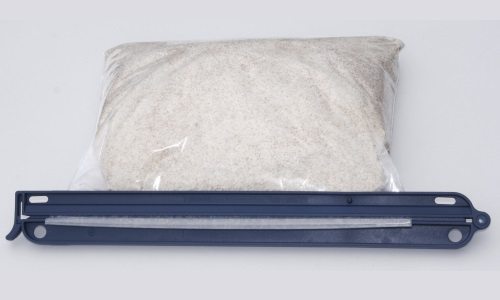Swedish company WeLoc – Weland M. AB uses DuPont Delrin acetal resin in its new range of food industry bag closures for its suitability for ‘snap-closure’ action, durability at -50°C.
It also says this grade can be seen by metal detectors.
These features, combined with creep resistance, strength, stiffness, toughness, low wear and low friction, offer WeLoc and other food industry suppliers an engineering polymer capable of replacing metal components in applications.
As metal or X-ray detection is required in the food industry to protect against foreign material cross contaminating food, the two new food-compliant Delrin resins are developed for food processing equipment components; material handling equipment, such as conveyor chains and hoppers; food-manipulation tools, such as cutters, shovels, scrapers; as well as forms and molds.
Particles as small as 3mm, the size of three sugar grains, can typically be detected using standard inspection systems.
This helps ensure contaminated food does not reach the consumer.
“We tested other materials for this application but chose Delrin as it fulfilled a number of our major requirements – use down to -50°C, fully metal detectable and FDA/EU(GMP) compliant,” said Arne Henningsson, division manager at WeLoc.
“The material also maintains its properties well, has a good resistance against moisture and is pre-colored in the right shade of blue for the food industry.”
The WeLoc closure, originally developed in 1983 for the liquid-tight sealing, has grown to include more than 50 variants in multiple sizes, for the sealing and reclosing of flexible packages across industries and in the home.
They are sold all over the world, under the names WeLoc, CLIP-it and Klippit.
Dupont says Delrin offers potential savings, for example in conveyors, including: cost and maintenance savings based on improved design and functional integration; reduced energy consumption due to lighter components; and longer replacement intervals based on excellent wear/friction properties.
It adds that Delrin typically does not require additional lubrication, resulting in silent and durable mechanisms, and offers good, clean aesthetics, leading to a cleaner and friendlier working environment.
It also is highly resistant to cleaning agents and offers very good behavior under thermal shock.
It also promotes ergonomic improvements thanks to lighter equipment and quieter systems due to lower noise emissions compared to metal equivalents.










